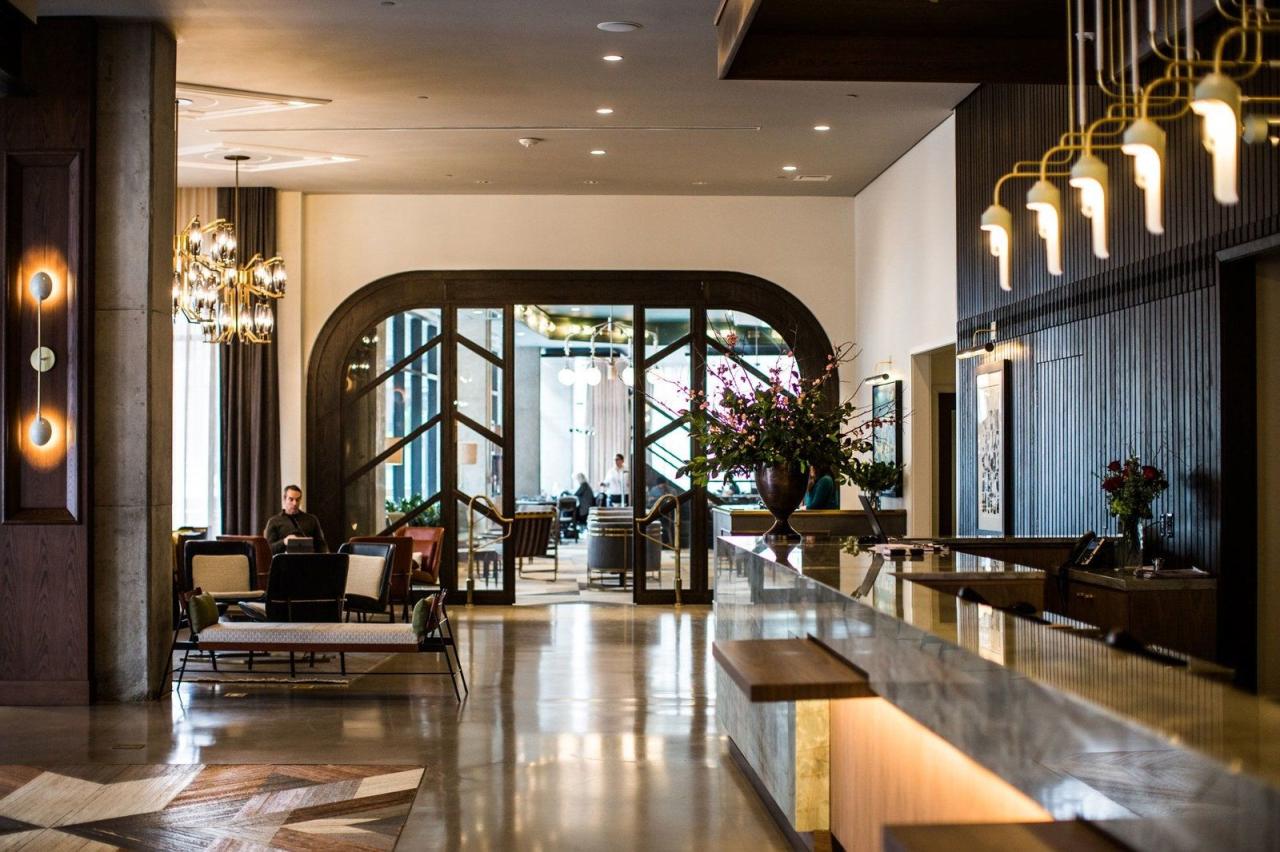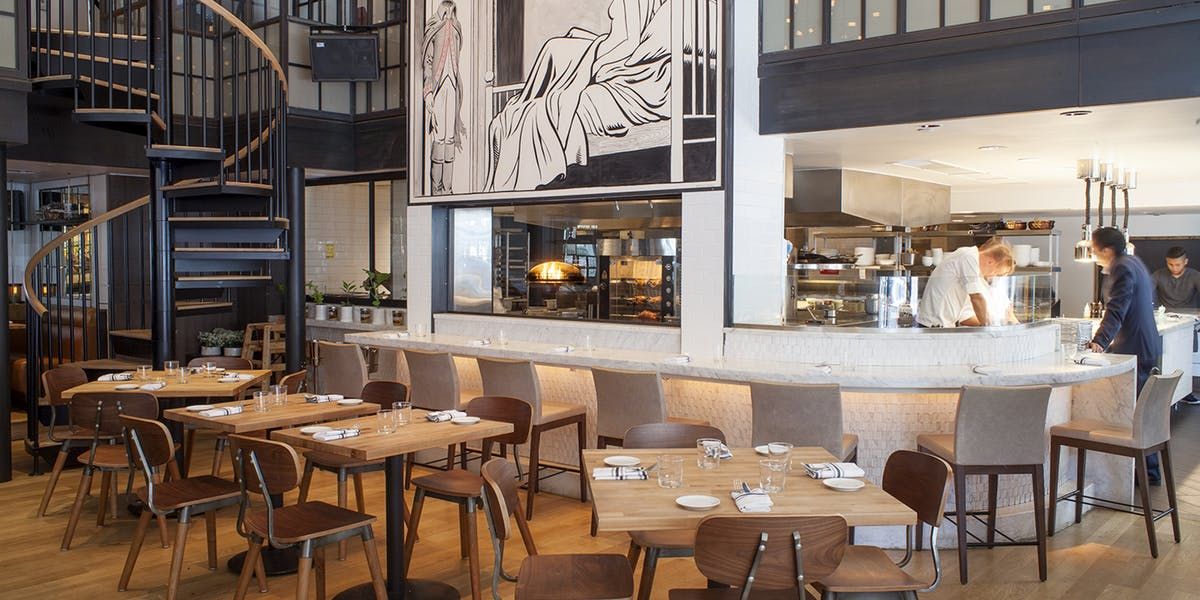New Hospitality Trends Reshaping Guest Experiences
The global hospitality industry is in a constant state of flux, continuously adapting to the evolving demands and sophisticated preferences of modern travelers. What once defined exceptional service or a memorable stay is now being reimagined through a lens of personalization, sustainability, and technological integration. This comprehensive article delves into the most impactful and burgeoning trends that are currently reshaping the landscape of hospitality, offering a deep dive into how hotels, resorts, and various accommodation providers are innovating to meet and exceed guest expectations. We will explore the critical shifts in traveler psychology, the pivotal role of cutting-edge technology, the growing imperative of sustainable practices, and the relentless pursuit of authentic, immersive experiences that go far beyond a mere place to sleep.
The Evolving Guest: More Than Just a Room Night
Today’s guests are more informed, more discerning, and possess a wider array of expectations than ever before. They are not simply looking for a bed and a bathroom; they seek a holistic experience that caters to their specific needs, values, and lifestyle. Understanding this evolution in guest behavior is fundamental to anticipating and addressing the future of hospitality.
A. The Quest for Hyper-Personalization
The one-size-fits-all approach to hospitality is rapidly becoming obsolete. Guests crave experiences that are meticulously tailored to their individual preferences, interests, and even their moods. This goes beyond remembering a guest’s favorite coffee; it involves predicting their desires and proactively offering bespoke solutions.
- Pre-Arrival Customization: Before a guest even sets foot on the property, hotels are engaging with them to understand their purpose of travel (business, leisure, family), dietary restrictions, preferred room temperature, pillow type, and even their preferred entertainment options. This data is then used to curate their stay.
- In-Stay Anticipation: AI-powered systems and highly intuitive staff are now working in tandem to anticipate guest needs. If a guest frequently orders a specific dish or uses a particular amenity, hotels are beginning to offer it without being asked. Concierge services are becoming more proactive, suggesting activities or dining experiences based on observed guest behavior or stated interests during check-in.
- Post-Stay Engagement: Personalization extends beyond checkout. Hotels are leveraging data to send tailored offers for future stays, recommend local experiences that align with past interests, or even send birthday greetings with special discounts, fostering long-term loyalty.
- Personalized Digital Touchpoints: Custom-built hotel apps now allow guests to control room settings, order room service, or book services directly from their phone, with the app interface often adapting to their language and preferences. This creates a seamless and intuitive digital journey.
B. The Growing Demand for Authentic Local Experiences
Travelers, particularly the younger generations, are increasingly seeking genuine, immersive experiences that allow them to connect with the local culture and community. They want to live like a local, not just visit as a tourist.
- Curated Local Tours and Activities: Hotels are partnering with local artisans, chefs, historians, and guides to offer unique experiences that go beyond standard tourist attractions. This could include private cooking classes in a local home, guided street art tours, or behind-the-scenes access to cultural performances.
- Integration of Local Art and Design: Hotel interiors are moving away from generic designs towards aesthetics that reflect the local heritage, materials, and artistic traditions. This creates a stronger sense of place and enhances the guest’s immersion in the destination.
- Sourcing Local Produce and Talent: Restaurants within hotels are increasingly prioritizing locally sourced ingredients, showcasing regional cuisine, and employing local staff to provide an authentic flavor and support the local economy. This also aligns with sustainability efforts.
- Community Engagement Programs: Some hotels are facilitating opportunities for guests to participate in local community initiatives, such as volunteering at a school or participating in environmental clean-up efforts, adding a deeper, more meaningful dimension to their stay.
C. The Wellness and Well-being Imperative
The focus on health and well-being has transitioned from a niche offering to a core expectation in luxury hospitality. Guests are seeking comprehensive wellness solutions that cater to their physical, mental, and spiritual health.
- Holistic Wellness Programs: Beyond traditional spas, hotels are now offering integrated wellness programs that include personalized fitness regimes, guided meditation and yoga sessions, mindful eating experiences, and even sleep optimization programs.
- Nutritionally Conscious Dining: Menus are being adapted to cater to diverse dietary needs and preferences, with a strong emphasis on fresh, organic, locally sourced, and plant-based options. Dedicated wellness menus and juice bars are becoming common.
- Mindfulness Spaces and Digital Detox Zones: Hotels are creating tranquil spaces for relaxation, meditation, or digital detox, allowing guests to escape the constant connectivity and find inner peace. These might be dedicated quiet rooms, serene gardens, or even “no-device” zones.
- Biophilic Design Elements: Incorporating natural elements like abundant plant life, natural light, and water features into hotel design to enhance guest well-being, reduce stress, and create a connection with nature, even in urban environments.
- Sleep-Focused Amenities: Recognizing the importance of restorative sleep, hotels are investing in high-quality mattresses, pillow menus, blackout curtains, soundproofing, and even aromatherapy diffusers to ensure guests experience optimal rest.
Technological Integration: The Seamless Enabler
Technology is no longer just about operational efficiency; it’s a fundamental tool for enhancing the guest experience, streamlining processes, and providing unprecedented levels of personalization and convenience.
A. Contactless Journeys and Mobile Integration
The pandemic significantly accelerated the adoption of contactless technologies, which have now become an expected convenience for many travelers.
- Mobile Check-in/Check-out: Guests can use their smartphones to check in, receive a digital key, and bypass the front desk entirely, saving time and reducing physical contact. Similarly, check-out can be completed with a few taps on a mobile device.
- Digital Room Keys: Smartphones are increasingly replacing traditional key cards, allowing guests to unlock their room doors and access common areas with their mobile device, adding both convenience and security.
- In-App Service Requests: Hotel apps enable guests to order room service, request amenities (e.g., extra towels, toiletries), book spa treatments, or communicate with staff directly through messaging functions, eliminating the need for phone calls.
- QR Code Menus and Information: Physical menus and information booklets are being replaced by QR codes, providing instant access to up-to-date dining options, hotel services, and local attractions on a guest’s personal device, reducing waste and increasing flexibility.
B. Artificial Intelligence and Machine Learning for Predictive Service
AI and ML are transforming how hotels understand and interact with their guests, moving from reactive service to proactive anticipation.
- Personalized Recommendations: AI algorithms analyze guest data (past stays, preferences, online behavior) to offer highly personalized recommendations for dining, activities, and even future destinations, enhancing the relevance of every interaction.
- Predictive Maintenance: Machine learning is being used to predict when equipment might fail (e.g., HVAC systems, elevators), allowing hotels to perform proactive maintenance, minimize downtime, and prevent guest inconvenience.
- Chatbots and Virtual Concierges: AI-powered chatbots on websites or within hotel apps can handle a wide range of guest inquiries, from basic FAQs to complex booking modifications, providing instant 24/7 support and freeing up human staff for more nuanced interactions.
- Dynamic Pricing Optimization: AI models analyze real-time market demand, competitor pricing, and historical data to dynamically adjust room rates, optimizing revenue for hotels while offering competitive prices to guests.
C. Smart Room Technology and IoT (Internet of Things)
The hotel room itself is becoming increasingly intelligent, offering guests unprecedented control and comfort through interconnected devices.
- Voice-Activated Controls: Guests can control lighting, temperature, curtains, entertainment systems, and even order room service simply by using voice commands through in-room smart speakers or tablets.
- Personalized Lighting and Ambiance: Smart lighting systems can adjust brightness and color temperature to match a guest’s mood or time of day, enhancing comfort and promoting relaxation or productivity.
- Automated Climate Control: Smart thermostats learn guest preferences and automatically adjust room temperature for optimal comfort, even when the guest is out of the room, contributing to energy efficiency.
- Connected Entertainment Systems: Seamless integration with streaming services, personal devices, and high-definition displays allows guests to enjoy their preferred entertainment content effortlessly, just as they would at home.
The Ethical Imperative and Competitive Advantage
Sustainability is no longer a buzzword; it’s a fundamental expectation for many modern travelers and a crucial element for responsible hospitality operations. Hotels that genuinely commit to environmental and social responsibility are gaining a significant competitive advantage.
A. Energy and Water Conservation Initiatives
Hotels are implementing innovative solutions to drastically reduce their environmental footprint.
- Renewable Energy Sources: Adoption of solar panels, geothermal heating, and wind energy to power operations, significantly reducing reliance on fossil fuels.
- Smart Energy Management Systems: Automated systems that optimize lighting, heating, and air conditioning based on occupancy and external conditions, minimizing energy waste.
- Water Recycling and Greywater Systems: Implementing systems to treat and reuse water for irrigation, toilet flushing, and other non-potable uses, conserving precious fresh water resources.
- Low-Flow Fixtures and Sensors: Installation of low-flow showerheads, toilets, and sensor-activated faucets to reduce water consumption without compromising guest comfort.
B. Waste Reduction and Circular Economy Practices
Minimizing waste and embracing circular economy principles are becoming central to sustainable hospitality.
- Elimination of Single-Use Plastics: Phasing out plastic water bottles, toiletries, straws, and packaging in favor of refillable dispensers, glass bottles, and compostable alternatives.
- Comprehensive Recycling and Composting Programs: Implementing robust systems for separating and recycling waste, along with composting food waste to reduce landfill contributions.
- Food Waste Management: Utilizing food waste tracking technology, optimizing portion sizes, and donating excess edible food to local charities to minimize waste.
- Upcycling and Repurposing: Finding creative ways to repurpose discarded materials, furniture, or linens within the hotel or donating them to local communities.
C. Ethical Sourcing and Local Supply Chains
Responsible sourcing practices benefit both the environment and local communities.
- Local and Organic Food Sourcing: Prioritizing ingredients from local farms and suppliers, reducing carbon emissions associated with transportation, and supporting local economies.
- Fair Trade and Ethical Products: Sourcing amenities, linens, and other supplies from suppliers committed to fair labor practices and ethical production.
- Sustainable Building Materials: Using eco-friendly, recycled, or locally sourced materials in construction and renovation projects, minimizing environmental impact.
D. Community Engagement and Social Responsibility
Hotels are increasingly becoming active members of their local communities, contributing positively beyond economic impact.
- Supporting Local Employment and Training: Prioritizing the hiring and training of local residents, empowering communities through skill development and job creation.
- Philanthropic Initiatives: Engaging in charitable activities, donating to local causes, and supporting community development projects.
- Cultural Preservation: Actively supporting and promoting local arts, crafts, traditions, and historical sites, ensuring their preservation for future generations.
- Educational Programs for Guests and Staff: Informing guests about sustainable practices and local culture, and educating staff on environmental stewardship.
Experiential Design: Crafting Memorable Journeys
The design of hospitality spaces is evolving from mere aesthetics to a deliberate creation of environments that evoke emotions, facilitate connections, and enhance the overall guest journey.
A. Blurring Lines: Lobby as Social Hub
The traditional hotel lobby is transforming from a mere functional space into a vibrant, multi-functional social hub that encourages interaction, work, and relaxation.
- Co-working Spaces: Integrating comfortable and technologically equipped areas where guests can work informally, encouraging both productivity and serendipitous encounters.
- Pop-up Shops and Local Showcases: Featuring local artisans, designers, or food vendors in the lobby area, offering guests a taste of the local culture and providing a platform for local businesses.
- Flexible Seating Arrangements: Offering a variety of seating options, from communal tables to cozy nooks, to cater to different needs and foster various social dynamics.
- Experiential Check-in: Replacing traditional reception desks with more informal, personalized check-in experiences, often involving comfortable seating and a welcoming beverage.
B. Immersive Themed Experiences
Hotels are creating unique, immersive themes that extend beyond superficial decor, offering guests a narrative-driven stay.
- Storytelling Through Design: Each element of the hotel, from its architecture to its amenities, is designed to tell a coherent story, whether it’s based on local history, a specific artistic movement, or a fantastical concept.
- Sensory Experiences: Incorporating elements that appeal to all five senses – unique scents, curated soundscapes, tactile materials, and distinct culinary offerings – to create a truly immersive environment.
- Interactive Art Installations: Featuring art that guests can interact with, touch, or even contribute to, making the hotel experience more engaging and memorable.
- Themed Guest Rooms: Offering different room themes or experiences within the same hotel, allowing guests to choose an environment that resonates most with them.
C. Outdoor and Green Spaces Integration
Recognizing the value of nature, hotels are increasingly integrating lush outdoor areas and green spaces into their design.
- Rooftop Gardens and Urban Farms: Utilizing rooftop spaces for gardens, lounges, or even small-scale urban farms that supply the hotel’s restaurants.
- Vertical Gardens and Living Walls: Incorporating living plants into interior and exterior walls, improving air quality, aesthetics, and connection to nature.
- Outdoor Lounges and Dining: Creating comfortable and inviting outdoor spaces for relaxation, socializing, and al fresco dining, extending the usable space of the property.
- Access to Nature Trails and Parks: For resorts, ensuring seamless access to natural surroundings, whether it’s private beaches, hiking trails, or expansive gardens.
The Future Workforce: Adaptability and Empathy
The human element remains critical in hospitality, but the skills and roles required are evolving alongside technology and guest expectations.
A. Enhanced Emotional Intelligence and Empathy
As technology handles more routine tasks, the human workforce’s role becomes more focused on nuanced interactions and emotional connection.
- Anticipatory Service: Staff are trained to observe and anticipate guest needs, offering solutions before being asked, demonstrating a high level of proactivity.
- Problem Solvers and Crisis Managers: With complex requests and unforeseen issues, staff need enhanced problem-solving skills and the ability to remain calm and empathetic under pressure.
- Cultural Competence: A globalized world demands staff who are culturally aware, respectful, and able to cater to guests from diverse backgrounds with sensitivity and understanding.
- Personal Connection Builders: The ability to build genuine rapport with guests, making them feel valued and understood, becomes paramount for creating loyalty.
B. Tech-Savvy and Digitally Literate Staff
Even with automated systems, staff need to be comfortable and proficient with new technologies to assist guests and manage operations.
- Proficiency with Hotel Management Systems: Staff need to be adept at using property management systems (PMS), customer relationship management (CRM) software, and other digital tools.
- Troubleshooting Basic Tech Issues: Ability to assist guests with in-room smart technology, connectivity issues, or mobile app functionalities.
- Data Interpretation: Understanding basic data insights to better personalize guest experiences or identify operational inefficiencies.
- Digital Communication Skills: Effective use of online communication platforms for internal team collaboration and external guest interactions (e.g., chat, messaging apps).
C. Flexible and Multiskilled Roles
Traditional rigid roles are becoming more fluid, with staff trained to handle a wider range of responsibilities.
- Cross-Training: Employees are cross-trained across different departments (e.g., front desk staff also assisting in F&B, or housekeeping assisting with guest requests) to provide more seamless service.
- Agile Teams: Creating flexible teams that can adapt quickly to fluctuating demand or unexpected situations, ensuring optimal staffing levels and service quality.
- Upskilling and Reskilling Programs: Continuous learning opportunities for staff to acquire new skills, particularly in technology, sustainability, and advanced guest service.
The Impact of Macro Trends on Hospitality
Beyond the direct industry innovations, broader global shifts are also exerting significant influence on hospitality trends.
A. Blended Travel: Bleisure and Digital Nomads
The lines between business and leisure travel are increasingly blurring, giving rise to “bleisure” trips and the growth of digital nomads.
- Work-Friendly Amenities in Leisure Hotels: Resorts and leisure-focused hotels are adding co-working spaces, high-speed internet, and dedicated business services to cater to guests extending their leisure trips for work.
- Extended Stay Options with Home Comforts: Hotels are offering more flexible, longer-term stays with amenities like kitchenettes, laundry facilities, and pet-friendly policies to attract digital nomads and extended business travelers.
- Flexible Booking and Cancellation Policies: Recognizing the fluid nature of modern work and travel, hotels are offering more lenient booking and cancellation terms to provide greater flexibility.
B. Hyper-Localism and Authenticity
A counter-movement to globalization, hyper-localism emphasizes unique, authentic experiences deeply rooted in the specific culture and environment of a destination.
- Celebration of Local Craft and Cuisine: Hotels are actively seeking out local artisans, musicians, and chefs to integrate their talents and products into the guest experience, providing a truly unique and local flavor.
- Sustainable Partnerships with Local Businesses: Collaborating with local businesses for tours, transport, and supplies, ensuring that tourism benefits the community directly and authentically.
- Preservation of Cultural Heritage: Some hotels are actively involved in projects to preserve local historical sites, traditional arts, or indigenous languages, offering guests opportunities to learn and contribute.
C. Safety, Security, and Trust
In an uncertain world, guests prioritize their safety and security, and hotels are responding with enhanced measures and transparent communication.
- Advanced Cleaning and Sanitation Protocols: Implementing rigorous cleaning practices, often with visible cues (e.g., seals on doors), and utilizing advanced technologies like UV light for disinfection.
- Transparent Communication: Clearly communicating all safety measures, health protocols, and emergency procedures to guests before and during their stay, building trust and confidence.
- Enhanced Digital Security: Protecting guest data through robust cybersecurity measures, especially with the increased use of mobile apps and contactless payments.
- Personalized Security Features: Offering features like digital keys, guest-controlled access to rooms, and enhanced surveillance in common areas, while respecting privacy.
Conclusion
The hospitality industry is poised for an exciting future, one where innovation, empathy, and sustainability are at its core. The emerging trends paint a clear picture: guests are seeking much more than just a comfortable bed. They desire personalized, authentic, and purposeful experiences that resonate with their values and enrich their lives. Hotels that embrace these shifts, leveraging technology to enhance human connection and committing genuinely to responsible practices, will not only thrive but will redefine what it means to offer true hospitality. From the seamless digital journey to the profound human interaction, from sustainable operations to immersive cultural encounters, the new era of hospitality promises truly unforgettable stays that cater to every facet of the modern traveler’s needs and desires. The industry is no longer just about accommodation; it’s about crafting integrated, meaningful experiences that leave a lasting positive impact.











